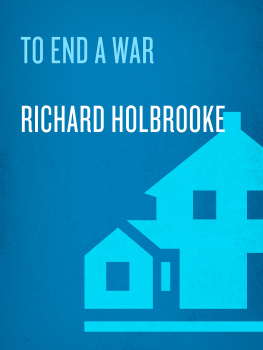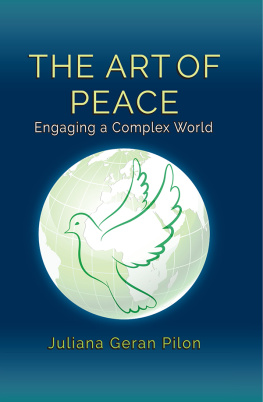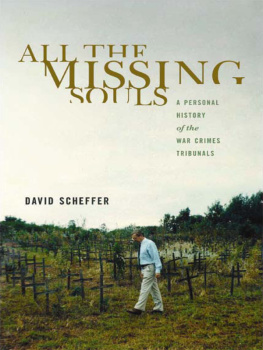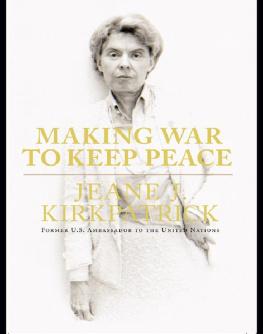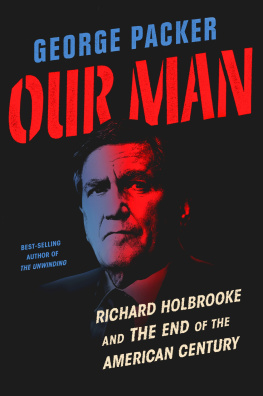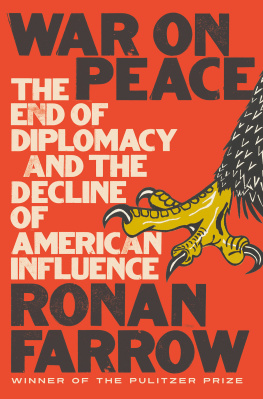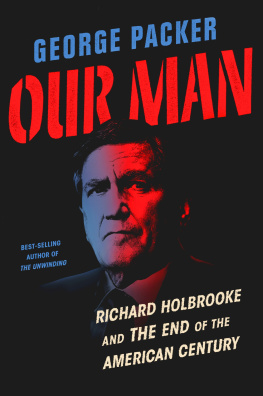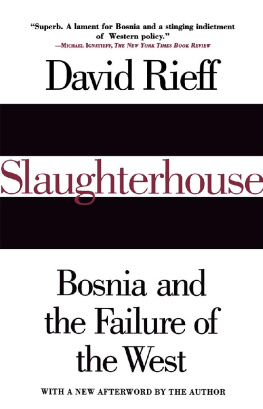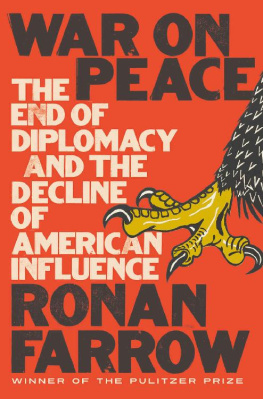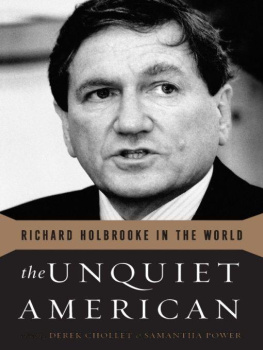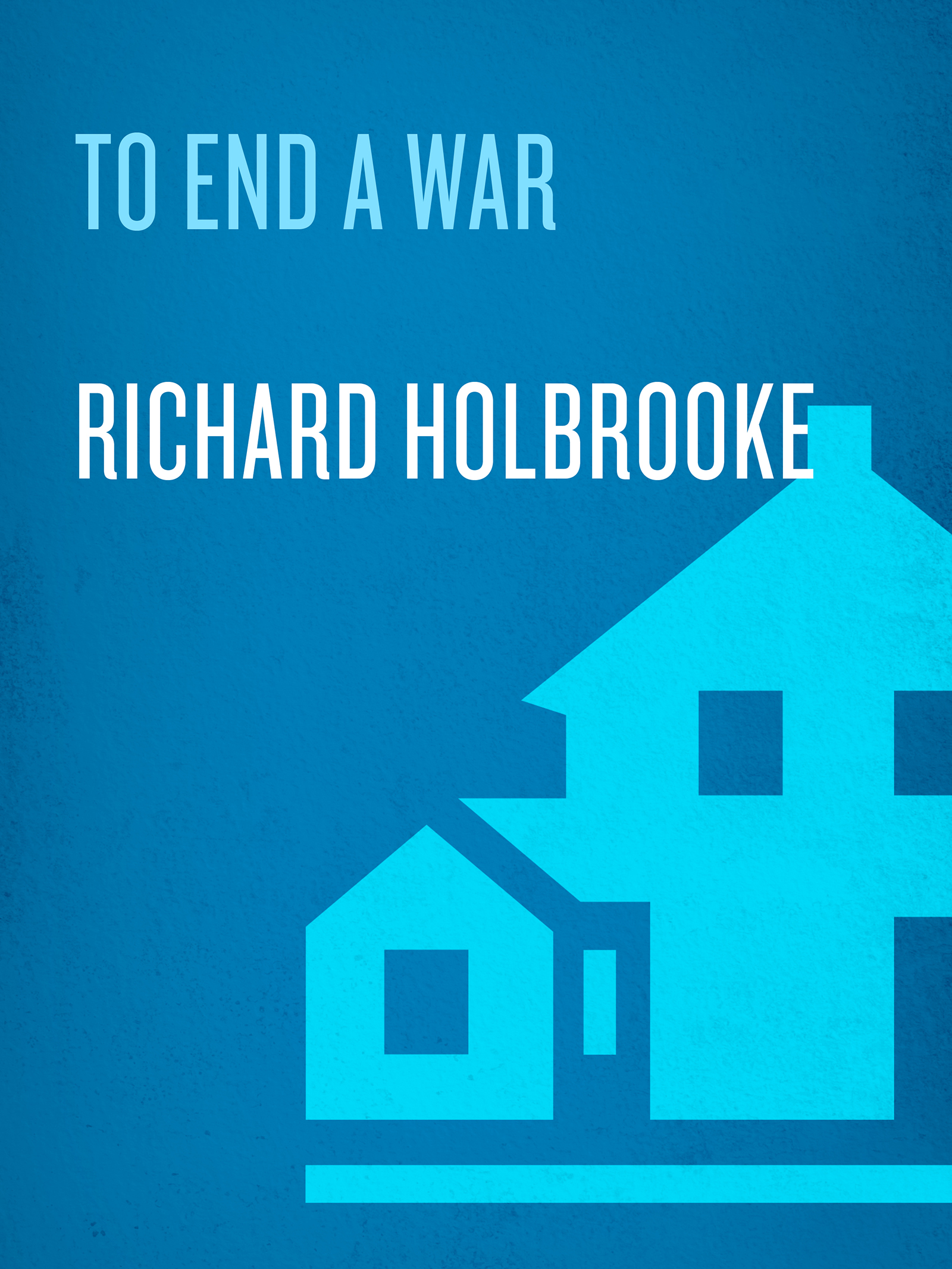In selecting To End a War as one of the eleven Best Books of the Year, The New York Times wrote:
Diplomacy is the grungiest job. But it must be satisfying because this enthralling book is also a heartfelt call to America to use its power when societies break down and to become a steady global force resisting human rights abuses everywhere. It is filled with anecdotes and sharp pictures of the wily Balkan leaders Holbrooke had to deal with, as well as with shrewd and seldom flattering analyses of the personalities and motivations of timid American and NATO military commanders. His re-creation of battles over principle and tactics with Western generals and State Department and White House officials are dramatic, and his description of a rudderless administration during the early days of his efforts is astonishingly candid, and convincing. His combativeness may offend the pinstripe set, but it is wonderfully refreshing on the page. It is a very rare book on diplomacy that makes you feel you were in the midst of it, and excited to be there.
The New York Times Book Review
More praise for To End a War
One of the most important and readable diplomatic memoirs of recent times. His account should restore some respect to the much maligned art of diplomacy.
The Washington Post
A compelling account of a life-and-death negotiationthe personal dynamics, the theatrical gestures, the unexpected snags, the leaks. A classic exercise in lockup, great-power diplomacy. To End a War is a riveting book.
Time
Engaging, witty, and dramatic. Holbrooke paints a picture of an administration so inattentive and rudderless that it was often unclear what policy, if any, it had adopted
The New York Times Book Review
Holbrooke is brilliant, forceful, determined, focused. In his intuitive feel for the realities of power diplomacy and his strategic vision, he is the heir to Henry Kissinger in American diplomacy.
New York Post
Of all the many excellent books that have been written on Bosnia, To End a War may turn out to be the most important. Holbrooke has written a superb book, one that is clear and honest. Bosnia needed a Holbrooke; perhaps more importantly, so did Washington, if it was to redeem its besmirched honor.
M ICHAEL E LLIOTT , Newsweek
Easily the best book of recent years on how to carry off a diplomatic negotiation. We can only hope that the White House, Congress and the public are listening, and that generations of Americans will read Holbrookes book.
The Philadelphia Inquirer
A first-rate piece of diplomatic history. Holbrooke portrays the inner circle of the Clinton administration at work and makes as powerful a case for the use of tactical force as is ever likely to appear in print.
The New York Times
A natural writer, Holbrooke uses poetic license to dramatize events into an absorbing read. We have him bluffing, shouting at, or cursing Balkan politicians, negotiating deals of great consequence on the fly, stitching things together as he goes along.
The Boston Globe
A roller-coaster ride, from the drivers seat. The going is rambunctious and fascinating.
Foreign Affairs
A bravura performance, fascinating, informative and powerfully argued.
The New Republic
Peppered with amusing anecdotes and shrewd insights. Richard Holbrooke is the Quentin Tarantino of diplomacy.
The Economist
To End a War should be read by anyone who still believes that the relationship between the United States military and its political overseers is healthy.
T HOMAS E. R ICKS , The Washington Monthly
The first detailed insider account of foreign policy battles in the Clinton presidency. An unsettling, prophetic book.
J IM H OAGLAND , The Washington Post
Riveting and forthright. Holbrookes memoir is both highly literate and informed, as well as notably readable. It is steeped in the tradition of diplomatic memoirs by eminent diplomat/authors such as Henry Kissinger and Harold Nicolson.
Kirkus Reviews (starred)
Holbrooke on Bosnia is legendary.
The Christian Science Monitor
One of the most important memoirs written about a post-cold war crisis. Historians, diplomats and foreign policy experts will surely read To End a War in an attempt to understand the intricacies of how American actions were decisive in bringing an end to the worst tragedy to occur on European soil since World War II. Holbrooke gives riveting accounts of the meetings between members of the Principals Committee who, with President Clinton, made life-and-death decisions over NATO bombing and the timing of peace negotiations. The author also takes the reader on a tour de force of intense negotiations between the infamous figures who share responsibility for the demise of the Balkans. Like other memoirs written about historic negotiations, To End a War will take on greater importance as leaders try to learn from history. To End a War is a vital starting point to understanding the success and failures of building peace.
The Georgetown Public Policy Review
Absorbing. What mattered [to Holbrooke] was the exercise of American leadership in setting the post-cold war global pace, in keeping the peace in Europe, and in strengthening a Western alliance badly strained by what was otherwise regarded as a second-tier regional problem. Holbrooke has been
hailed for prodigies of imperial shrewdness, manipulation, and overall orchestration. Yet his willingness to second-guess some of his own tactics along the way adds to the credibility of his account.
S TEPHEN S. R OSENFELD , World Policy Journal
The Dayton Agreement provided much-needed relief from the horrible war that preceded it, and it is largely to the credit of Richard Holbrooke that there is any agreement at all. He has now given us, in To End a War, his memoir of this crucially important negotiation, the crowning achievement (so far) of an impressive diplomatic career. The book makes compelling reading.
P AUL W OLFOWITZ , The National Interest
To End a War is a good book, well written and very readable. It is invaluable to have such a substantial contribution to the public record, written by a principal player so soon after the event.
P AULINE N EVILLE-JONES , Prospect
To End a War goes a long way toward revealing a much more human and thoughtful figure behind the brash, pushy image. Though Holbrooke was presented in the media as a sort of diplomatic Lone Ranger, one of the constant themes of this book is the teamwork on which he always depended. The point is made in a dramatic and tragic way in his opening chapter, in which he describes how three of his closest colleagues lost their lives when their armored vehicle rolled off a mountain track on the outskirts of Sarajevo. This is one of several genuinely moving moments in To End a War.
N OEL M ALCOLM , Los Angeles Times Book Review
A graphic and insightful account of one of the most difficult problems the United States has faced since the end of World War II.
W ARREN C HRISTOPHER
This brilliant and remarkable book is both an absorbing firsthand narrative of the Balkan conflict and an invaluable contribution to the history of our time. This is more than a book about Bosnia. There will be more Bosnias in our future, and To End a War offers basic guidance about the uses of American power in a dangerous world.

